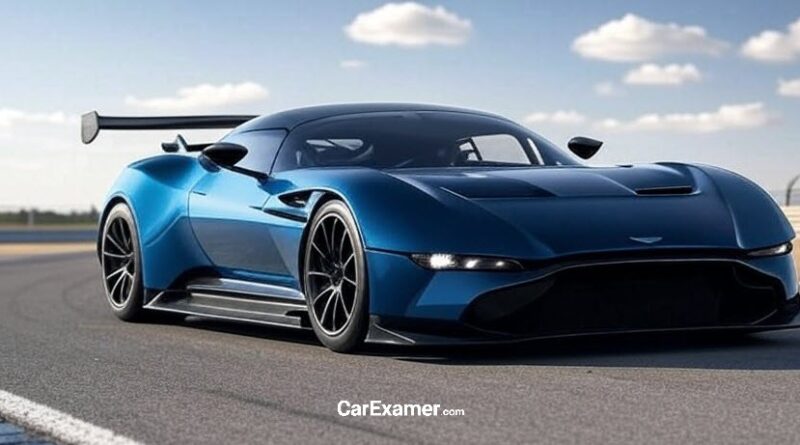Aston Martin Vulcan Problems Common Issues and Repair Costs
The Aston Martin Vulcan is an extreme track-focused supercar produced in very limited numbers between 2015 and 2016. With a 7.0-litre naturally aspirated V12 engine producing over 800 horsepower, the Vulcan delivers exceptional performance. Despite being engineered to the highest standards, owners of this ultra-rare car face unique challenges. Knowing the common problems and repair costs is essential for anyone maintaining or owning a Vulcan.
Common Aston Martin Vulcan Problems
1. Engine and Performance Issues
The Vulcan’s V12 engine is highly complex and designed for track use:
- Oil leaks from high-stress seals and gaskets
- Valve or timing component wear under heavy use
- Cooling system stress on extended track sessions
- Fuel delivery and throttle calibration issues
Repair costs: Minor engine maintenance, such as gasket or sensor replacement, costs £5,000 to £10,000. Major engine repairs or rebuilds may exceed £50,000 due to limited parts availability and specialist labour.
2. Transmission Problems
The Vulcan features a six-speed sequential racing gearbox:
- Gear linkage wear or adjustment issues
- Clutch wear from track use
- Hydraulic actuator faults
Repair costs: Minor gearbox servicing costs £3,000 to £7,000, while a full rebuild may range from £25,000 to £40,000.
3. Suspension and Chassis Issues
The Vulcan uses a fully adjustable double-wishbone suspension system with push-rod actuated dampers. Problems can include:
- Damper leaks or failure under track stress
- Suspension bushings or mounting points wearing
- Chassis cracks or fatigue after extreme track use
Repair costs: Suspension servicing or replacement costs £5,000 to £15,000. Chassis repair, if required, can exceed £30,000 due to the complexity of the carbon fibre structure.
4. Brake System Issues
The Vulcan is equipped with carbon ceramic brakes:
- Brake pad wear under track conditions
- Disc wear or cracking
- Hydraulic leaks in master cylinders
Repair costs: Pad replacement costs £2,000 to £4,000 per axle, while disc replacement can reach £20,000 to £25,000.
5. Electrical and Electronics Problems
Given the Vulcan’s advanced electronics for telemetry and vehicle dynamics:
- Sensor or ECU failures
- Wiring issues from high vibration track use
- Telemetry and data logging malfunctions
Repair costs: Minor electrical repairs cost £1,000 to £5,000, while full ECU or system replacement may cost £15,000 or more.
6. Bodywork and Exterior
The Vulcan’s lightweight carbon fibre body is vulnerable to damage:
- Track incidents can cause cracks or delamination
- Paint or carbon fibre finishing requires specialist repair
Repair costs: Cosmetic carbon fibre repair costs £10,000 to £20,000, while structural repairs after major damage can exceed £50,000.
7. Interior and Cockpit
The Vulcan’s stripped-out track interior is simple but built to precise standards:
- Seat belt harness wear
- Instrument cluster or switch failures
- Carbon fibre trim scratches
Repair costs: Interior repair costs £2,000 to £7,000, depending on parts and restoration.
Tips for Aston Martin Vulcan Owners
- Schedule all servicing with Aston Martin authorised or high-performance specialists.
- Monitor engine and transmission closely during track use.
- Inspect suspension, brakes, and tyres regularly.
- Store the car in a climate-controlled facility to prevent material degradation.
Conclusion
The Aston Martin Vulcan is a rare and extreme supercar built for track performance, but it comes with maintenance challenges. Common problems include engine wear, gearbox and clutch issues, suspension and brake stress, carbon fibre bodywork damage, and electronics faults. Repair costs can range from £1,000 for minor electrical fixes to over £50,000 for major engine or bodywork repairs. Proper care and specialist maintenance are essential for preserving performance and value in this ultra-rare supercar.
Buying a used VW. Buying used vauxhall, BMW, Jaguar, Ford, Volvo, Range rover, Bentley, Aston Martin, Porsche, Ferrari, Lamborghini, Maserati, Hyundai, Tesla, Honda, Pagani

